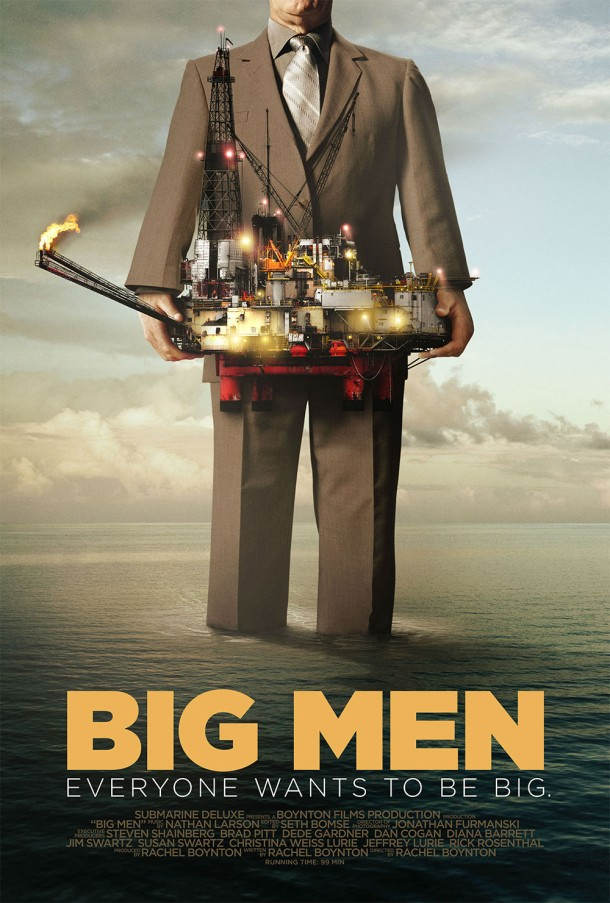Human Rights Watch Film Festival 2014: Big Men

A documentary about the evils perpetrated by American oil companies is hardly groundbreaking. What makes Rachel Boynton’s documentary – her second – so unique is not its subject matter, but the unprecedented closeness of her inspection of it. The access Boynton gains to notoriously secretive oil companies is astounding. Kosmos Energy, new and relatively small, are the first to discover oil in Ghana; this documentary follows their dealings over several years with the Ghanaian government.
The documentary juxtaposes the hopeful tone in Ghana, a response to the emerging oil trade and the optimistic thoughts of the wealth and jobs it should bring to its people, with the bleak tone in Nigeria. Oil was discovered there over 50 years ago, and where, thanks to the corruption of the politicians in charge of the trade, Nigerian people have seen no benefit from the resource found on the land they share.
Where Boynton’s documentary is strongest is its depiction of Kosmos and its CEO, Jim Musselman. It would have been easy to frame them as cartoon-like villains, but Boynton’s analysis of them retains objectivity. An oft-repeated line in the film, said by people from just about every rung on the economic ladder, relates to self-interest and greed being innate human characteristics. Sympathy felt for these soon-to-be extremely wealthy men might be misplaced, but anyone who values money to the extent they do, anyone that shallow, is surely to be pitied as a sad consequence of the society in which they were raised.
Stylistically, the film lets itself down. Instead of relying on cliché music, Boynton should have either sought out a more original composer or favoured diegetic sounds. The music that so thickly spreads the melodrama is unnecessary in scenes like the one in which the first significant drilling occurs, and should have let the natural drama of the situation seep through with chilling, industrial sounds of machines.
With Boynton’s relentless informative bludgeoning of the viewer, the film is left with almost no quiet breathing space. It would have been worth having the camera spend a little more time lingering on the country whose destruction it is meant to be depicting. On the rare occasions Boynton does allow for this, the documentary lifts itself out of the realm of news report and remembers that it’s a piece of cinema. When the Nigerian militants, The Deadly Underdogs, destroy several oil pipelines in protest of the corruption of the Nigerian government, two of the men responsible for the attack stand with a backdrop that takes in both the beauty of Nigeria and the rising smoke of the destroyed oil pipelines; the camera lingers on them and the symbol of the destruction is immensely powerful for it.
Boynton has made a documentary that’s admirable in its depth of information and objectivity, but in its pursuit of these things, has all too often forgotten about its cinematic style.
The editorial unit
Read more reviews from Human Rights Watch Film Festival 2014 here. For further information about the festival visit here.
Watch the trailer for Big Men here:























Facebook
Twitter
Instagram
YouTube
RSS